ROLI Interview
ROLI invented a new kind of keyboard with the Seaboard and its recent acquisition of the JUCE software platform could create even bigger waves in music production. MusicTech meets the most important company in music technology right now… Shoreditch has become the creative hub of London, arguably the UK, with some of music production’s top […]
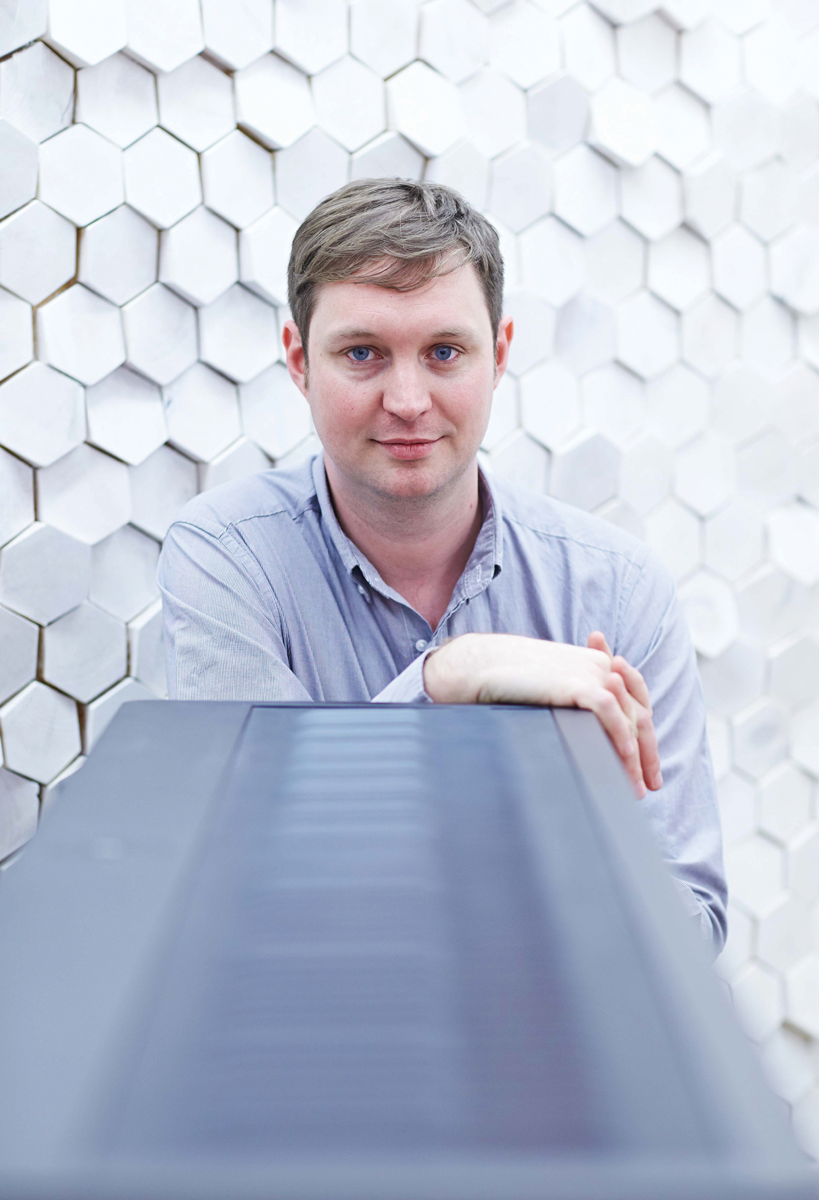
ROLI invented a new kind of keyboard with the Seaboard and its recent acquisition of the JUCE software platform could create even bigger waves in music production. MusicTech meets the most important company in music technology right now…
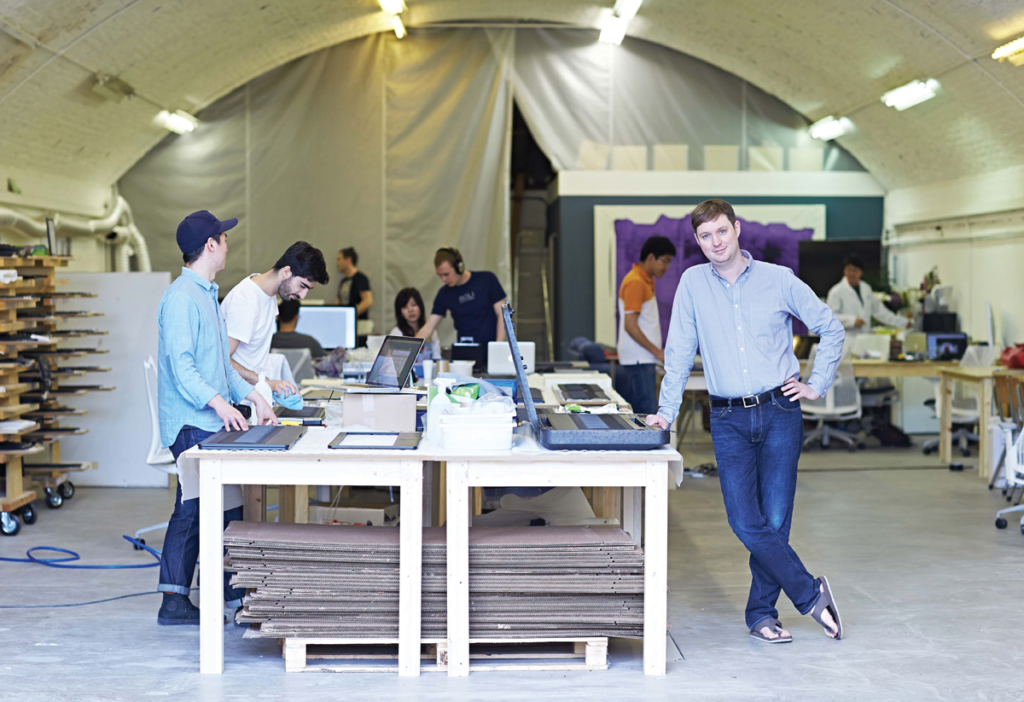
Shoreditch has become the creative hub of London, arguably the UK, with some of music production’s top outfits located there including Point Blank, SAE London and Native Instruments. Now the new boys of music tech are there, and they’re making a lot of NOISE…
ROLI makes the Seaboard range of keyboards with completely new dimensions of expressive playing and sound mangling. The company has also just released NOISE, an app that allows anyone with an iPhone 6 to experience the Seaboard for free. Yes, it’s an advert for the keyboard, but you won’t find this level of fun and creativity in any other app, let alone one that is free. Got a 6? Download it now.
ROLI also has a working environment that encourages creativity and the kind of 21st century philosophy and strategy that you’d imagine is straight out of Google and the coolest of Seattle-based start-ups.
This company ethos is no surprise, as ROLI founder, New Hampshire-born Roland Lamb, has the kind of background and upbringing that sewed the seeds of this creativity. It started with home schooling by his artist parents, took in the famous alternative ‘free’ Summerhill school in the UK and ended with studying classical Chinese and Sanskrit philosophy at Harvard and a PhD in design at the Royal College of Art.
Add in a stint at a Zen monastery in Japan and you can understand why working at ROLI – as we found on a recent visit there – is more akin to working at the cutting-edge research department of a creative university rather than your regular nine to five…
You’d be forgiven for thinking that this could all be hot air with little in the way of results, but ROLI has entered the competitive music technology market with some gusto.
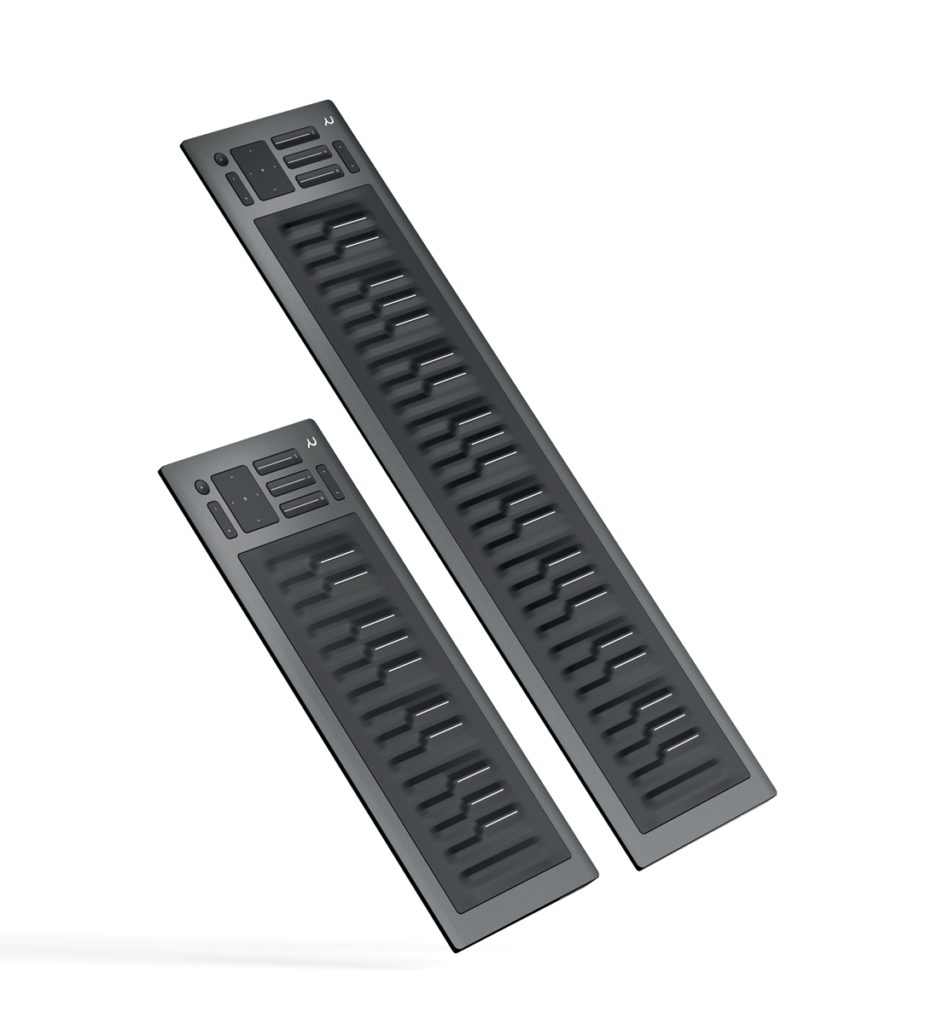
You’ll have seen the results: those distinctive Seaboard keyboards have a look straight out of the future and a feel to match. While you can play the Seaboard range like regular keyboards, you can also stroke them, wobble them, strike, feel and interact with them to create new ways of playing.
The Seaboard GRAND was the company’s opening salvo, a larger keyboard with 61 keys, or Keywaves, that costs £2,499 upwards. The RISE, though, is where ROLI is currently at. And by that we mean that this is the product that should bring the musicians to the ROLI party. It’s an incredible piece of technology that does everything its older and bigger brother does and a bit more. It comes bundled with the brilliant Equator synth and is priced to make (key) waves.
As we said when we reviewed it: “It’s £599 for a new piece of smooth tech – and with Equator thrown in, that makes it a great buy. And for sticking its neck on the line to produce a brand new piece of hardware that’s totally unlike anything else out there? Well, ROLI can only be applauded.”
So ROLI’s hardware and software could be your future, but the company’s acquisition of JUCE and Blend.io makes it your present. JUCE is the software development tool used by industry big shots like NI, and Blend is a collaboration platform compatible with more than a dozen DAWs. As you can see, then, there’s a big chance your music-making future will be somehow entwined with ROLI’s. The company has the instruments, the tools and the platforms for music production, and its CEO has some interesting views that he shares here in this exclusive interview…
MusicTech: Tell us a little about your own background…
Roland Lamb: I’m motivated by the goal of creating joy. We live in a time where our relationship with technology is subject to constant redefinition. How will we engage with our tools and physical and digital extensions in the future?
The answer is that it is almost completely up for grabs, and innovative companies will play a huge role. My passion lies in redefining the relationship between humans and computers in ways that expand interaction.
MT: What was your impression of the studio industry?
RH: I’ve always had a love-hate relationship with music, studio and performance technology. Music making is one of my passions, but I’ve always been more of an ‘eyes-closed’ performer than a technologist.
I love the feeling of physical connection that comes from experiencing expressive touch and sound in real time. The electronic technologies had enormous benefits, offering huge versatility, incredible sound palettes, and new and more accessible ways to create music, but they all lacked the fundamental expressive connection between the tactile and the sonic, which has always been at the heart of music making.
So I invented the Seaboard and founded ROLI to address that and bring the minimal magic of a Steinway grand piano or a Stradivarius to electronic music.
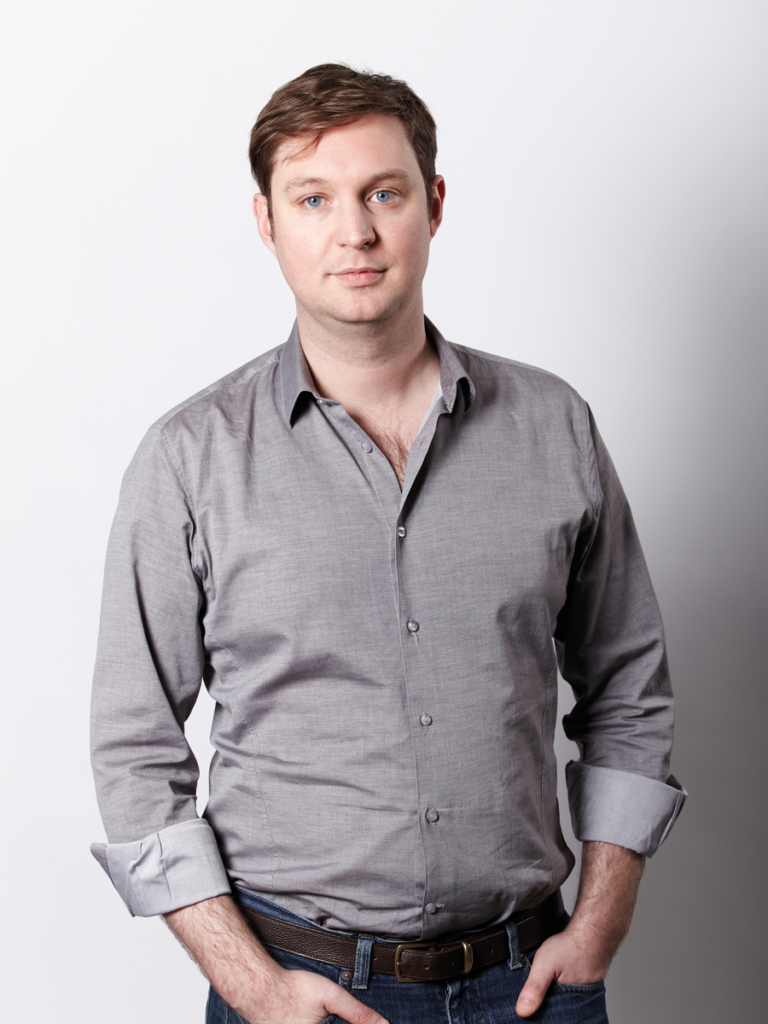
MT: What did you want to achieve initially?
RH: I think there is a huge latent interest for music and music making, and so many people I meet say they want to play an instrument but maybe it’s too expensive, or too difficult.
But I think about the analogy between music making and photography. 20 years ago, they were equally difficult and expensive to do. Photography has now been totally transformed and you can take and publish a photo to a very high standard in less than a minute.
In 2016, more photos will be taken than during the whole history of photography because so many more people can enjoy it. Music hasn’t seen the same radical transformation and I think there’s a big opportunity within it right now.
On a personal level, there was a gap in my musical experience and that was enough at the beginning. I wasn’t particularly interested in business then, really just in philosophy, invention and design, but I soon found that business is wonderful context for innovation, and turning my own excitement about transforming music making into a shared journey of co-creation.
With the Seaboard, I wanted it to realise its full potential as a new instrument. I thought about trying to license the idea to another company but worked out that to establish a new future for the keyboard would be a long journey of creation. Indeed, we received our first investment in 2012 and I think we are still only about 10% of the way towards realising the full potential of the Seaboard, and the Seaboard is just the very beginning of what we will build.
MT:Did you have a plan of releases from the start?
RH: To start with, everything came from the Seaboard GRAND. Before we built the first prototype, it became clear that we would need a multidimensional sound engine, like Equator.
Indeed, most of the core ideas for our current and many of our future products were established years ago as a direct result of working out the implications of what it would mean to fully establish the Seaboard as a new way of making music. These ideas have been refined, and focusing on continuous innovation keeps us open to the unknown.
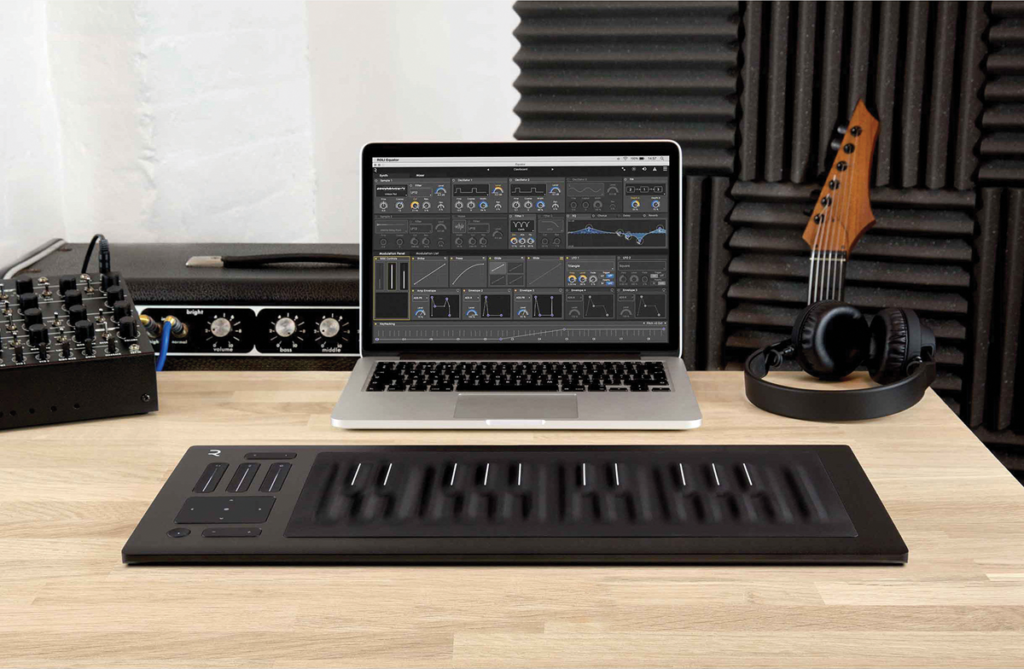
MT: Were you pleased with the impact the GRAND made?
RH: I’ve been thrilled. It’s a very powerful instrument with a classic design that I think will stand the test of time. It was so new that we didn’t quite know what to expect. It is being used all over the world in a wide variety of contexts and has been recognised as a design milestone that truly extends the possibilities of the piano keyboard, itself one of the greatest musical interfaces of all time.
Moreover, it has helped us build a foundation as a new kind of music company. And, finally, I’ve been particularly pleased that the GRAND was able to help us play a key role in establishing MPE, a new way of implementing MIDI that is already creating much wider compatibility among a huge range of multidimensional software and hardware products.
MT: The Seaboard RISE is clearly more ‘mass market’…
RH: It is for anyone interested in new ways of making music. It’s particularly focused towards acoustic musicians who would like to lean towards the electronic, and electronic musicians who would like to add more expressive depth, and innovators who straddle those two worlds.
It is universal, like a piano keyboard, and we’re finding that it is being used across every genre of music by all kinds of music makers, composers, producers and performers.
In particular, I think there are a lot of people who have a MIDI keyboard controller around, and are frankly a little tired with what they offer, and welcome the opportunity to play with something really fresh and new. And for producers, the ability to control as many parameters as they want in real time through our 5D touch technology can dramatically speed up workflows.
MT: We loved the RISE but we found that we really had to get hands-on with it to realise its full potential…
RH: Thank you! And, yes, you do have to experience the Seaboard RISE to fully understand its power. Usually, getting a complex message across involves a mixture of showing and telling.
In terms of telling, we’ve found that the concept of the 5D touch has been invaluable in helping people to understand the Seaboard. As for showing, we’re seeing more amazing performances and videos by Seaboard creators that demonstrate the capability of the Seaboard to extend the possibilities of musical expression.
For example, AR Rahman and six of his students recently played a medley of cinematic music completely live on seven Seaboards and the music they created has an incredible sonic range – for me, this makes the message of multidimensionality really hit home.
The HQ
MT: It’s a much bigger operation than we expected…
RL: We are just getting started with a lot of growth ahead. The structure is evolving, although I’m really fortunate to work with an incredible interdisciplinary team.
We’re always looking for imaginative and passionate musicians, makers, coders, engineers, scientists, inventors, designers and storytellers to join our team – a lot of growth comes from the serendipity of a wonderful group of radical individuals coming together around a shared mission.
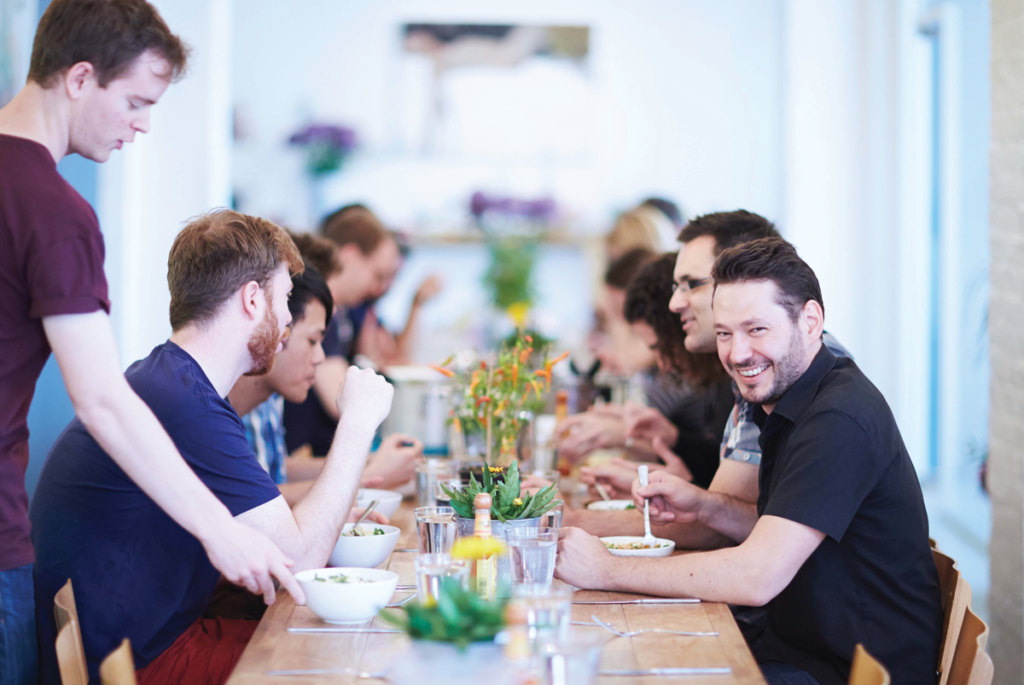
MT: We were very interested in the working environment and the encouragement of creativity…
RL: I was bringing in institutional elements from a lot of places I experienced in my upbringing – Summerhill when I was a kid or The Royal College Of Art, where there was an incredible creativity among the students. Along the way,
I wanted to take the same spirit of exploration and innovation that we have with our products into a working environment. One of these is trying to create a more seamless experience. What is the musician’s experience in terms of everything they do?
One of the ideas for me is that the model of work/life balance is not attractive. Your life is separate from your work and work is cast as the enemy of life, or at least something that eats into your interests. So pretty early on I wanted to replace the idea of the work/life balance with an idea of professional and personal synergy.
If we can build great products and work well with other people you will develop skills that hold you in good stead in other domains of your life, and if we respect those domains people will want to bring some of that into work.
Make Some NOISE
MT: Obviously the NOISE app will also be a part of this…
RH: We’re stoked about NOISE and thrilled to see people getting into it right off the bat. NOISE is definitely a great way for people to get a taste of what the five dimensions of touch are all about, but it is also called NOISE because we want to offer people a way to shape a sound with a touch of their fingers and literally just have fun making some noise.
MT: How will we see the app developed?
RH: We have an exciting roadmap ahead. As our software is made with JUCE, our cross-platform C++ coding framework, everything we have built works on every platform. JUCE is used by hundreds of companies, so by acquiring it we became partners with them. Bringing JUCE into the ROLI fold was one of the best things we’ve done, as we have transformed our software offerings.
It’s also a huge privilege to work with Jules Storer, the founder of JUCE. We knew that the key to establishing new instruments was to build great software integrations, not only with our own software, but with a whole ecosystem of tools that musicians know and love. JUCE has been an invaluable tool in establishing such broader compatibility, and is rapidly growing as a product in its own right.
We recently launched JUCE 4: Grapefruit JUCE, a powerful new version of JUCE that features an amazing instant compiling engine, and hosted the first annual JUCE summit in London, sponsored by Google and Native Instruments, which brought together over 100 leading audio and music developers from around the world. Watch this space for 2016…

MT: Tell us about some of your broader plans for the future?
RH: We have big plans for continuing the development of the Seaboard GRAND and RISE, our Equator sound engine, NOISE, JUCE and Blend. More broadly, though, we are re-imagining and reshaping the music making process from start to finish, and aiming to reclaim the magic of acoustic instruments in our digital tools in ways that open up every part of the music making process to a much wider public.
MT: What is your goal with both ROLI and beyond?
RH: That’s a good question… I want ROLI to be an adventurous organisation that makes a contribution to a more seamlessly connected music making ecosystem, so that if, for example, my son wants music making to be part of his life, he has frictionless, fun, and deeply expressive tools for learning, creating, and sharing music at his fingertips.
Beyond that, I hope we find ways to participate in a much larger conversation about how people will shape and relate to their technologies. I want to lean into my weaknesses and blindspots so that my own journey of creation can help me to grow as a human and constantly explore new horizons.